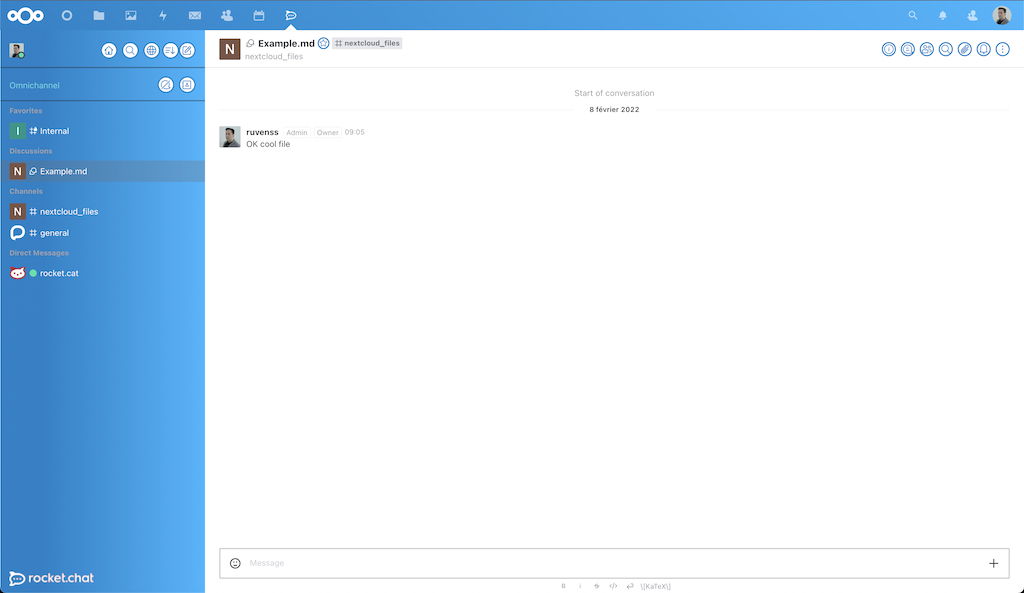Cloudflare’s Orange Me2eets: An End-to-End Encrypted, Self-hosted, Video Calling Solution
Orange Meets, now with E2EE.


Rocket.Chat is one of the best open-source slack alternatives and Nextcloud is an all-in-one collaboration platform.
And, they are pretty impressive.
This is why we use Rocket.Chat for our internal communication and Nextcloud to manage tasks/documents. Both of them are incredibly useful for what they are capable of.
And, now, it looks like Rocket.Chat and Nextcloud are taking things up a notch by developing a native API integration.
But, what would it do? Let us find out.

The primary objective of joining forces is to integrate their existing technologies, offering the best of both worlds.
As far as I am aware, we do not have a full-fledged open-source alternative to Microsoft 365.
Of course, you can combine various open-source technologies and choose to use them as a replacement for Microsoft 365.
But do we want an open-source solution that can replace Microsoft 365 minus the hassles?
Yes.
That’s what makes Rocket.Chat’s collaboration with Nextcloud exciting.
Nextcloud’s CEO shared his thoughts on this collaboration in the press release:
In a post-pandemic world, solutions like Office 365, Dropbox, and Slack will become more popular. This means that all of our data, communication, and digital lives will be in the hands of some big corporations without control, privacy and with this huge vendor lock-in
Frank Karlitschek, Founder and CEO at Nextcloud GmbH
To add to his thoughts, Rocket.Chat’s CEO also mentioned the following:
This new interaction between Nextcloud and Rocket.Chat puts us one step closer to building the ultimate open-source alternative to MS 365, giving back privacy and data sovereignty to the users.
Gabriel Engel, Founder, and CEO at Rocket.Chat
So, we should expect a powerful open-source platform tailored for privacy and security-focused users, with both interesting platforms collaborating.
With the integration, Nextcloud customers will be able to access Rocket.Chat’s features to improve the effectiveness of communication and collaboration.
Some of the new features include:
The Rocket.Chat app is now available in the Nextcloud marketplace. However, it is still a work in progress, and not ready for production yet.
You should be able to use the new features once the development completes soon enough (mostly, next month). As of now, we do not have any information on any new features being added to Rocket.Chat. Hopefully, there will be something on that with the final release.
What are your expectations from this partnership? Do you think Rocket.Chat’s integration with Nextcloud can be an attractive replacement to Office 365, Slack, and Dropbox combined?
Let me know what you think in the comments down below.
It's FOSS turns 13! 13 years of helping people use Linux ❤️
And we need your help to go on for 13 more years. Support us with a Plus membership and enjoy an ad-free reading experience and get a Linux eBook for free.
To celebrate 13 years of It's FOSS, we have a lifetime membership option with reduced pricing of just $76. This is valid until 25th June only.
If you ever wanted to appreciate our work with Plus membership but didn't like the recurring subscription, this is your chance 😃
Stay updated with relevant Linux news, discover new open source apps, follow distro releases and read opinions